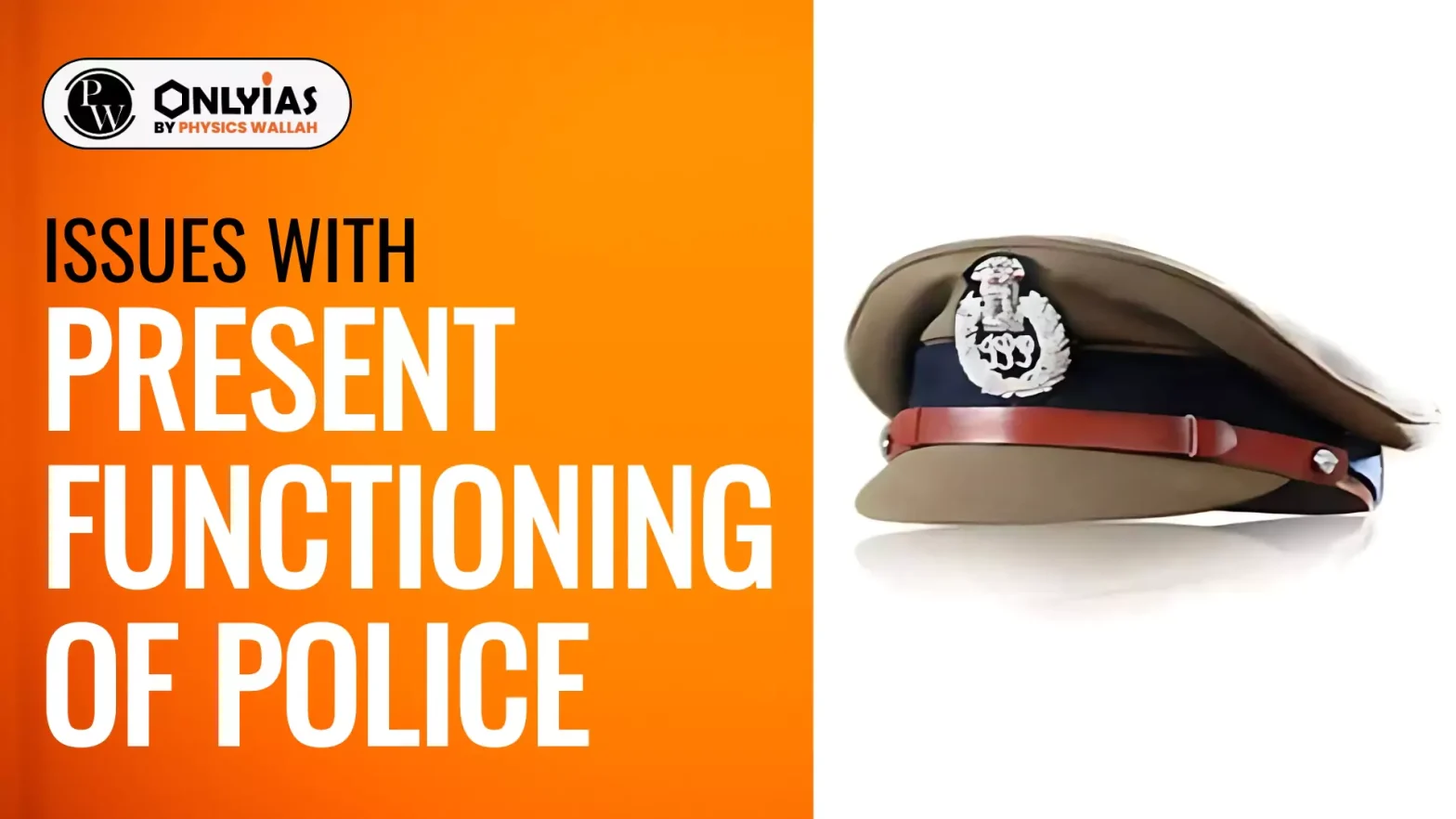Challenges in Police Accountability and Reform
- Accountability of Police: Both central and state police forces operate under the control and supervision of the political executive (i.e., central or state government) and are not held accountable to the public.
- Vacancies and Overburdened Force: A high percentage of vacancies within police forces exacerbates the problem of overburdened personnel.
- Custodial Torture and Death: Despite 1,727 documented custodial deaths in India between 2001 and 2018, only 26 police officers were found guilty of custodial violence (NCRB).
- Fake Encounters (Extrajudicial Killings): Fake encounters are a significant issue. Taking the law into one’s own hands is wrong, as it can erode public trust in law enforcement.
- Constabulary Conditions: The constabulary makes up 86% of state police forces, but they often receive inadequate training and work under poor conditions, necessitating reform.
- Promotions and Working Conditions: The Second Administrative Reforms Commission (ARC) has noted that promotion opportunities and working conditions in the police force are poor, leading to low morale and increased corruption.
- Crime Investigation: The Law Commission has indicated that focusing on police crime investigation and law enforcement together is ineffective. The Second ARC also noted that state police officers often neglect their responsibilities due to being understaffed and overburdened.
- Police Infrastructure: The Comptroller and Auditor General (CAG) and the Bureau of Police Research and Development (BPRD) have identified shortcomings in police infrastructure, including persistent underutilization of modernization funds.
Enroll now for UPSC Online Course
Committees Established for Police Reforms
- Gore Committee on Police Training (1971-73)
- National Police Commission (1977)
- Ribeiro Committee on Police Reforms (1998)
- Padmanabhaiah Committee (2000)
- Soli Sorabjee Committee (2005)
- Vohra Committee
- Supreme Court Verdict in Prakash Singh Case
Police Reforms by Government and Recent Initiatives
- Adoption of Model Police Act: Various states, including Assam, Bihar, Chhattisgarh, Gujarat, Haryana, Karnataka, Kerala, and Maharashtra, have adopted the Model Police Act to standardise and modernise police operations.
- Modernization of Police Forces Scheme: This initiative focuses on strengthening police infrastructure through the construction of police stations, training centres, and police housing.
- Crime and Criminal Tracking Network & Systems (CCTNS): This technology-driven initiative equips civil police investigating officers with essential tools, knowledge, and resources to enhance crime tracking and investigation.
- Administrative Changes: Key changes include separating investigation from law enforcement duties and establishing specialised wings for social and cyber crimes in several states to improve efficiency.
- Moving Towards Commissionerate System: Implementing a Commissionerate System where appropriate helps distribute power better within police forces and enhances accountability to the District Magistrate (DM) at the district level.
Check Out UPSC CSE Books From PW Store
Conclusion
Effective police reforms are crucial for ensuring accountability, improving working conditions, and modernising law enforcement in India. Addressing these issues can help build public trust and enhance the overall efficiency of the police system.
![]() 4 Oct 2024
4 Oct 2024

